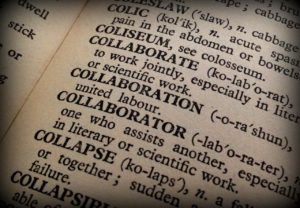 We recently helped a client initiate a project to improve their rig incident reporting process. The first thing we did was insist on building a project charter—something that’s not very common in the industry. A project charter in and of itself is not that special—it’s just a couple of sheets of paper. But the process of creating a project charter is everything.
We recently helped a client initiate a project to improve their rig incident reporting process. The first thing we did was insist on building a project charter—something that’s not very common in the industry. A project charter in and of itself is not that special—it’s just a couple of sheets of paper. But the process of creating a project charter is everything.
Why? Primarily because the charter creation process forces people to talk to each other. And when people talk and collaborate, there’s usually clarity and unity of purpose. We have yet to insist on a project charter where we didn’t hear something like this afterwards:
“Man, I never knew they had those problems before!”
“I had no idea that’s what she wanted.”
“That’s the first time I heard that.”
“If anything, we just dodged a bullet.”
“We finally have some clear objectives.”
“At least now we have some clue as to how much it will cost and how long it will take before we start.”
“I’m glad we did this.”
“We would have lost our asses on this project if we didn’t do this.”
Creating a project charter is an excellent exercise to help get alignment and general consensus of people and scope before potentially wasting a ton of money. In our experience, most projects take longer and cost more because the sponsor(s), project manager and stakeholders never took the time to create a charter together. It’s a collaborative effort, and if done properly, the charter creation process will help your organization answer these questions:
- Why is the project being considered?
- What’s the business case?
- Who is sponsoring it and what are his/her objectives?
- Who else has a say in the expected outcome(s) and what are their requirements?
- What are the benefits?
- How will the people/stakeholders/departments coordinate and communicate with each other?
- How long it should take, how many people will be needed and when, and how much it should all cost?
If you can’t answer these questions, don’t proceed with the project. Stop now as you’re destined to waste time and money and piss people off. Keep in mind that some of the best projects are the ones we never do! But if you can answer these questions satisfactorily, then you’re off to a great start and most of your project woes will be behind you. Now you can focus on good planning and execution.


